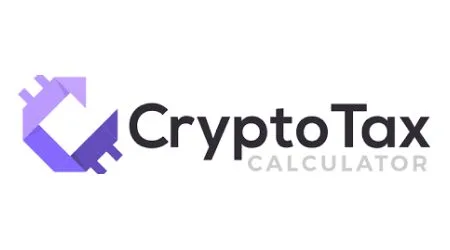 This guide is brought to you by Crypto Tax Calculator and Finder. On this page, you'll find a selection of articles and resources that provide you with information about your tax obligations around cryptocurrency. Before October 31 2023, ou can also get an exclusive discount of 30% off your first tax report from Crypto Tax Calculator by using the code FINDER23. To learn more about Crypto Tax Calculator, make sure to visit its website.
This guide is brought to you by Crypto Tax Calculator and Finder. On this page, you'll find a selection of articles and resources that provide you with information about your tax obligations around cryptocurrency. Before October 31 2023, ou can also get an exclusive discount of 30% off your first tax report from Crypto Tax Calculator by using the code FINDER23. To learn more about Crypto Tax Calculator, make sure to visit its website.
Preparing your crypto for tax time 2023
When it comes to tax time, having all of your assets in order is essential. Crypto is no exception.
The legislation around cryptocurrency taxation in Australia is relatively new and still evolving. So it's important to make sure that you're aware of your obligations, to avoid running afoul of the ATO.
What are crypto assets?
"Crypto assets" is a broad, catch-all term designed to refer to a range of different cryptocurrencies, NFTs and other similar emerging technologies stored on blockchains.
To the general public, crypto tends to be most heavily associated with Bitcoin. But since Bitcoin debuted in 2009, the crypto world has expanded to include thousands, if not tens of thousands, of different types of crypto assets.
But although they have different forms and can carry out different functions, every crypto asset has these 3 things in common:
- It's digital
- It's stored on the blockchain
- It has real-world value – though as with any type of asset, what they're worth can vary quite a bit
Tax considerations for crypto assets
One thing that's tripped up many crypto investors over the years is assuming that tax doesn't need to be paid on crypto earnings.
But this isn't true.
Crypto is considered an investment. As per Australian legislation, tax needs to be paid on money earned via investments.
We'll break down how that plays out down below, but in short, you can find yourself in hot water if you're not reporting crypto assets.
Monitoring transactions
When it comes to crypto, it's not just the buying and selling that's important. It's what you do with your crypto while you're holding it that can also have tax implications.
But why?
Well, like any other asset class on the market, crypto is generally bought and sold with the idea of making a profit.
With that said, crypto tends to be pretty dynamic. It's rare that people purchase it and just sit on it for years, the way you might with a physical asset like gold.
Rather, one type of crypto is often traded for other types of crypto (e.g. Bitcoin for Ethereum). Rewards may be earned by staking, airdropping or other types of transaction.
Some analogies can be drawn with share dividends or interest paid on bonds. But because crypto is a relatively new asset, it's not always immediately clear to investors which transactions attract tax and which don't.
Not to mention the paperwork involved in maintaining records across multiple exchanges, multiple different types of crypto assets and accounting for all the fluctuations in value.
This is where tools like Crypto Tax Calculator can be extremely handy.
With the right calculator software, you'll be able to track your transactions, determine whether they're likely to be taxable and create an accountant-ready report.
This allows you to ensure accuracy when you're lodging your return.
Capital gains tax vs income tax
By and large, tax on crypto focuses on capital gains. This is because the Australian government doesn't recognise crypto as a currency in and of itself, it's just an asset like any other.
So in practice, you bought low, you sold high and in turn you pay tax on the difference.
Unless, of course, you made a loss. We'll get to that shortly.
Income tax can still come into play, though. Money earned through transactions like staking or airdropping can arguably be considered as earnings that should be lodged for income tax.
However, legislation is still very much emerging around crypto assets and tax.
At time of writing, there are numerous grey areas, so it's always worth consulting with a financial professional for up-to-date advice.
Traders vs investors
If you're a crypto trader (i.e. someone buying and selling crypto on a professional basis), then your tax implications will be a bit different to a private investor.
As with many other asset classes, the distinction between a trader and investor can be a bit hazy.
However, if the ATO suspects that you are a trader, or you're just buying and selling sufficiently large amounts of crypto, you may be required to register for an ABN.
By and large, though, most crypto owners in Australia are considered investors.
They might own some crypto, but it's often not the central focus of their portfolio. Alternatively, they might own quite a bit of crypto, but they're not trading and transacting at a commercial scale.
If you're unsure what you might be, make sure to check out the ATO's guide to investing and trading.
Losses and deductions
As with any other type of investment, it's possible to make a loss on crypto.
Whether you're a trader or investor, you're able to claim losses to offset your current or future capital gains.
However, this only applies when you've actually divested yourself of the asset. It doesn't account for the fluctuations that can occur during your lifetime of holding the asset.
If you've held a crypto asset for 12 months or more, you're usually also able to apply for a discount on any capital gains tax that you may have incurred.
If you're a professional trader, you can also generally claim some of the costs of crypto purchases back too.
International crypto assets
If you currently hold crypto assets in overseas-based exchanges, it's possible that you will be required to pay tax both in Australia and in the exchange's home country.
Make sure you consult with a professional to see if you have any overseas tax obligations prior to lodging your Australian return.
Helpful articles and guides to assist you with your crypto tax needs
In addition to the information above, we've compiled a range of resources and articles to help you get prepared this tax season, explaining the hows, whys and what you need to know.
Learn more about Crypto Tax Calculator today


More guides on Finder
-
Free crypto tax calculator for Australians (2025)
Calculate your crypto tax obligations and prepare a report for the ATO with our free calculator.
-
CoinLedger review
Find out why CoinLedger's tax reporting is trusted by 300,000 crypto investors.
-
Crypto Tax Calculator review
Crypto Tax Calculator is a crypto tax software platform that supports over 500 exchanges and 100,000 transactions.
-
Best crypto tax software in Australia (2025)
Compare Australia's top crypto tax software (ATO compliant) for 2025. Find tools tailored for DeFi, NFTs, and more.
-
Koinly review
Koinly is a crypto tax software that consolidates your accounts and generates your tax docs.
-
CoinTracking review
A comprehensive review of CoinTracking, the portfolio manager that aims to make it easy to track all your digital currency trades and simplify tax time for crypto buyers.
-
Find a cryptocurrency tax accountant or tax agent in Australia
Read our comprehensive guide to comparing and choosing cryptocurrency tax accountants and tax agents in Australia.



